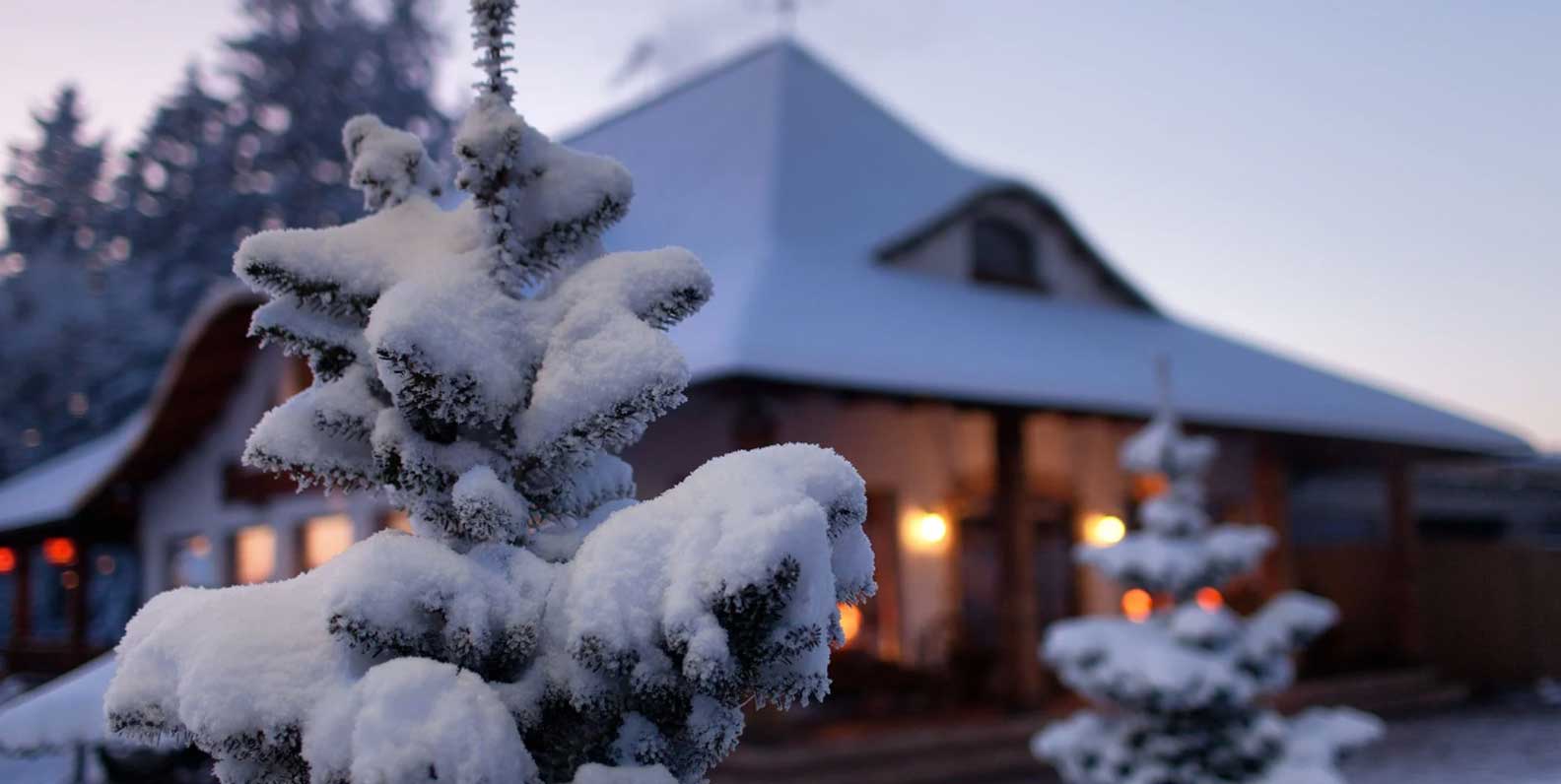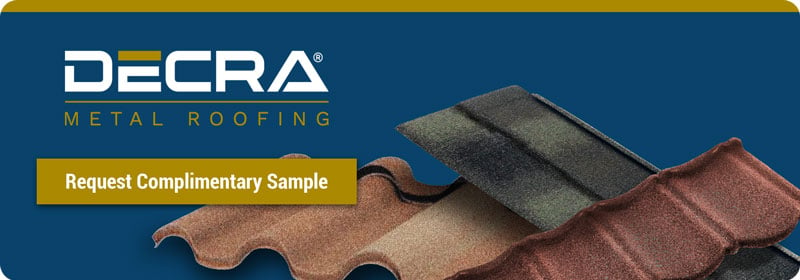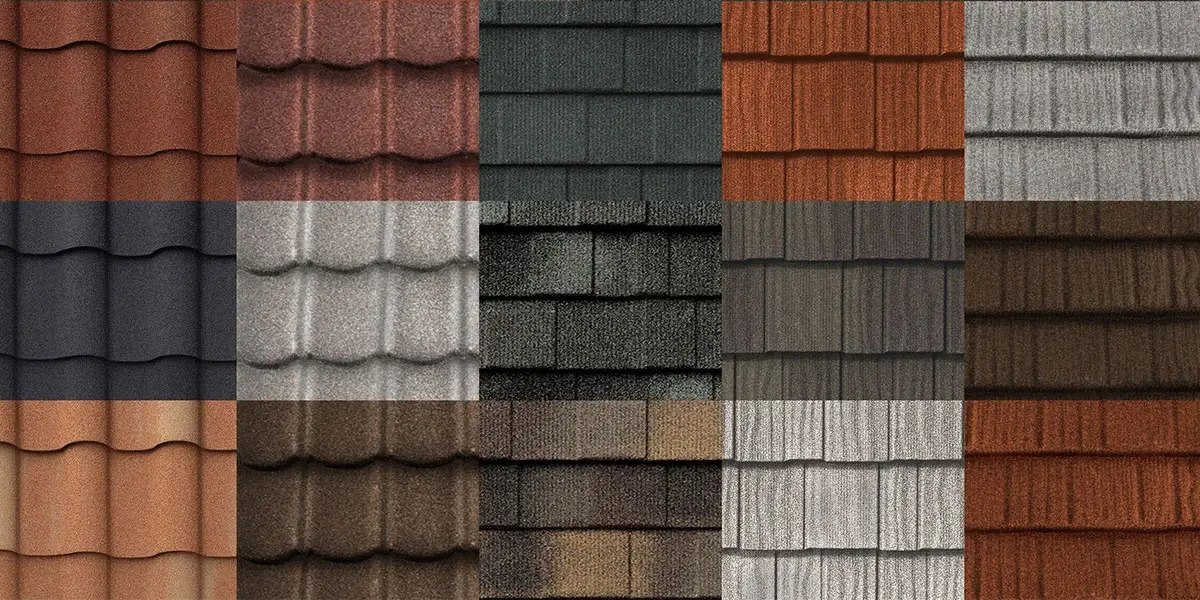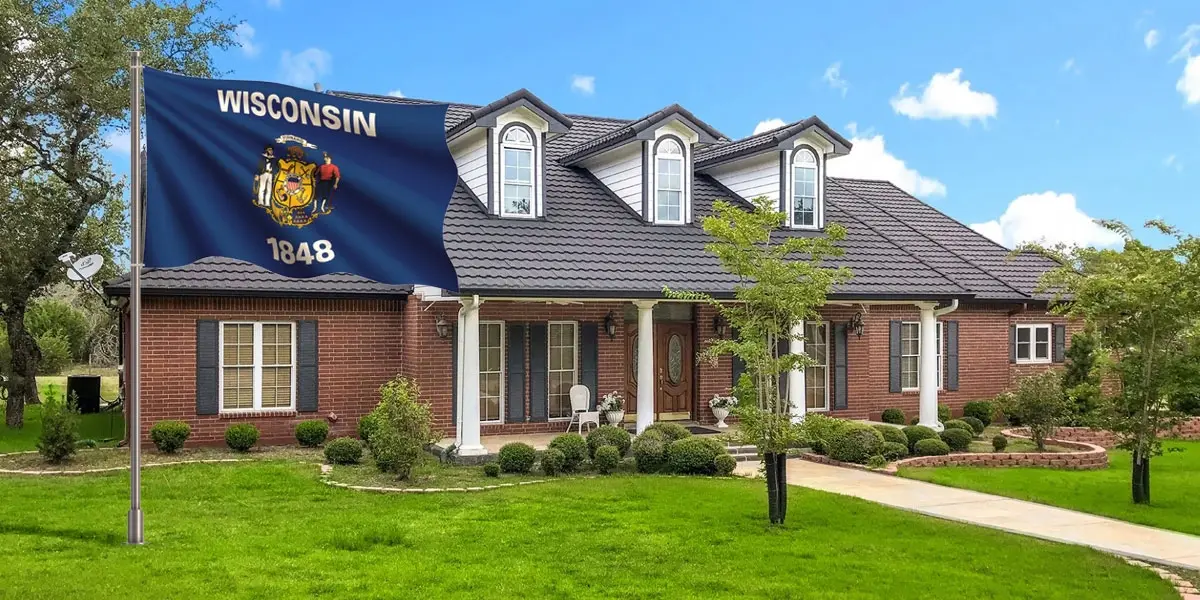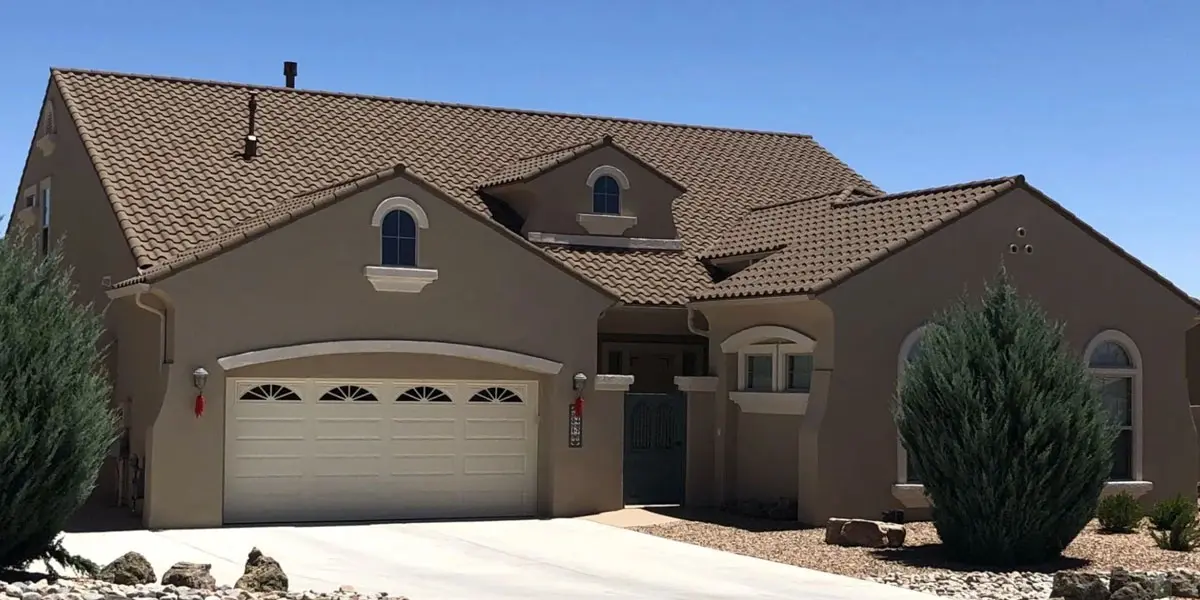Extreme weather has been increasingly unpredictable over the last few years. One thing remains certain: if you live in a colder part of the U.S., you’re bound to face rain, snow, ice, and freezing temperatures. Many of these regions are also experiencing storms earlier or later in the season, adding to the challenges of winter.
Fortunately, the right roof can safeguard your property no matter when the snow falls or the temperature drops. In this article, we’ll cover:
- The features that make metal roofing ideal for winter climates
- Additional benefits homeowners love about metal roofing
- FAQs about metal roofing and winter weather
With this information, you’ll see why metal roofing is a trusted solution for winter protection and year-round peace of mind.
How Metal Roofing Protects Homes from Snow, Rain, and Ice
Winter weather brings a mix of precipitation, freezing temperatures, and high winds. Let’s explore how stone-coated metal roofing offers protection against these elements.
Snow, Ice, and Freezing Temperatures
Metal roofing is a great choice for areas with heavy snowfall because it’s lightweight. Unlike heavier roofing materials like clay tiles and asphalt shingles, it can handle the added weight without sagging. Additionally, its nonporous surface helps regulate roof temperature, preventing the snow from melting and refreezing—a common issue with other roofing materials.
This melt-freeze cycle often leads to ice dams. Ice dams form when melting snow flows toward the roof’s edge and refreezes near the roofline, creating a barrier of ice around gutters and eaves. This barrier blocks additional snowmelt from draining properly, forcing water to seep into the fascia or even the home’s interior, causing costly damage.
DECRA metal roofing offers an added layer of protection against ice dams. Its unique design features an insulating air space between the roofing panel and the underlying deck, which helps maintain consistent temperatures, prevent leaks, and reduce the risk of ice dams forming.
High Winds
Colder climates experience strong winds, especially during the winter months. These winds can be driven by factors such as:
- Temperature differences: Cold air is heavier than warm air, leading to the development of wind as air moves from areas of high pressure (cold regions) to areas of low pressure (warmer regions).
- Weather systems: Winter storms, including blizzards and nor'easters, can bring both heavy snow and strong winds, with gusts sometimes reaching hurricane-force levels.
- Geography: Certain colder regions, such as mountainous areas, may experience intensified winds due to the local terrain.
Homeowners are pleased to know DECRA roofs are backed by a warranty that covers wind speeds up to 120 miles per hour.
Hail and Wind-Driven Rain
Winter storms can also bring rain and hail. DECRA has the highest possible rating for hail impact resistance, with a warranty covering hail up to 2.5 inches in diameter. Additionally, when rain is driven by strong winds, it can seep into even the smallest gaps in your roof. DECRA’s unique interlocking design helps seal out this risk, providing an extra layer of protection for your home.
Other Benefits of Metal Roofing
There are several other reasons why homeowners choose metal roofing. Here are five that are worth considering.
Long Lifespan
Metal roofs have a lifespan that is two to three times longer than roofs made of traditional materials, like asphalt shingles. This means you don’t have to replace your roof every 15 or 20 years.
Fire Resistance
DECRA holds the highest possible Class A fire rating. With wildfires becoming a growing concern on both coasts, this provides homeowners with added peace of mind.
Energy Efficiency
The same energy efficiency that helps homeowners conserve heat in winter makes it helpful in the summer. A modern metal roof reflects heat up and away from buildings, saving homeowners around 40% on energy costs.
Low Maintenance
Metal roofs require less maintenance than wood shakes and clay tiles because they aren't as prone to common roofing issues such as:
- Cracking
- Splitting
- Cupping
- Warping
- Oxidation
- Rust
- Mold growth
If you're tired of the constant upkeep of traditional roofing materials, you'll appreciate the low-maintenance benefits of a metal roof.
Insurance Discounts
Because of all the benefits listed above, insurance companies tend to prefer metal roofs on the properties they cover. It’s worth asking your carrier if they offer a discount for having one. Additionally, many insurance companies are now using drones to assess roof conditions and may drop coverage for properties with problematic roofs (those likely to file a claim). A metal roof reduces the likelihood of losing your insurance protection.
3 Common Questions About Metal Roofing
We hear many of the same questions about metal roofing, especially when it comes to winter weather. Here are the top three.
Do I need snow guards with a DECRA Metal Roof?
No! Snow guards are barriers that prevent snow and ice from sliding off the roof and damaging property or people below. Many homeowners with DECRA metal roofing don’t need snow guards because the roof maintains a stable temperature that prevents excessive melting. However, in some cases, especially homes with steep roofs, snow may slide off more easily. If you're concerned, you may choose to add snow guards for peace of mind, but they’re not required.
Can a metal roof be installed during winter, or do we need to wait until spring?
Yes! One of the great advantages of DECRA metal roofing is that it can be installed in winter. Unlike some traditional materials — like asphalt shingles, which can crack or split at temperatures below 45 degrees — metal roofing is able to withstand very low temperatures. As long as your contractor says it's safe to work, a metal roof can be installed during any month of the year.
Will a metal roof fit with my home's unique style?
Yes! DECRA Metal Roofing is available in shingle, tile, and shake profiles, with colors that complement any home style. Whether you have a Colonial residence, a Mission-style abode, or a contemporary home, you’ll be sure to find a profile and color that suits your home’s style.
Visualize DECRA Metal Roofing on Your Home
As the original manufacturer of stone-coated metal roofing products, DECRA has set the industry standard for durable roofing since 1957. Engineered to withstand extreme conditions, DECRA offers protection against snow, ice, and freezing temperatures. To see how DECRA would look on your home, we encourage you to try our free visualization tool.
Editor’s Note: This blog was originally published in February 2021 but has been updated with relevant information.

